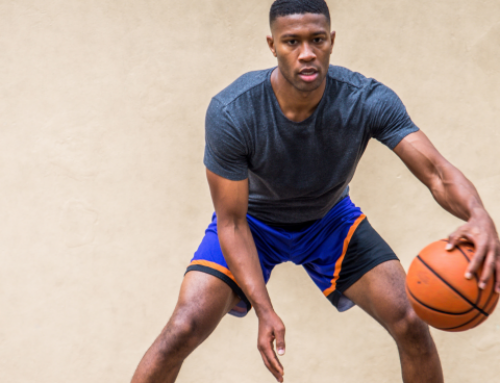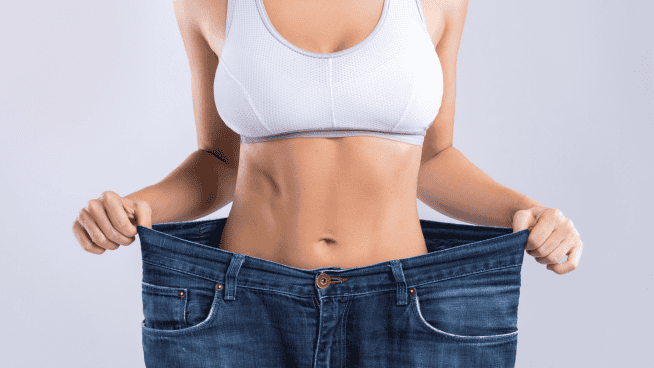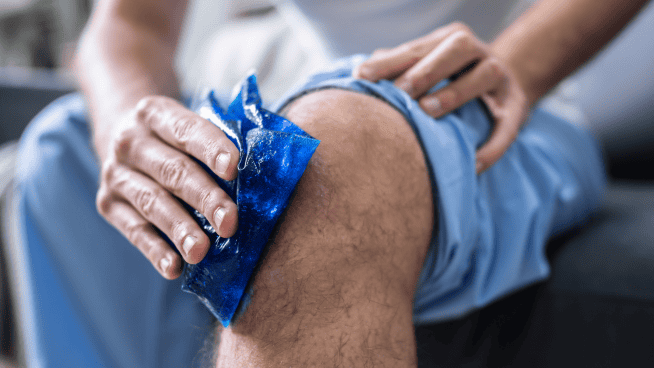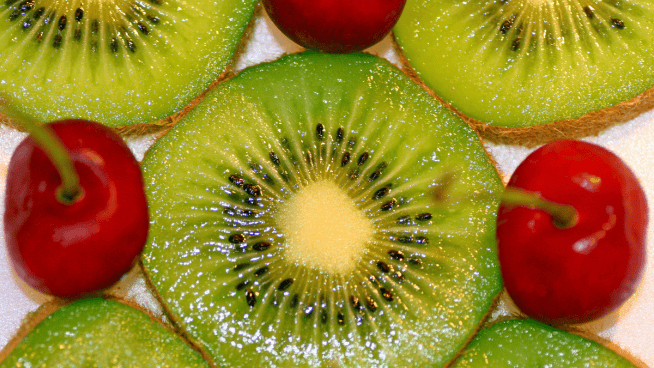Nutrition Guidelines for Basketball Players
Remember the old saying, “you are what you eat”? Impact Basketball Academy Strength & Conditioning coach Dave Stagnita believes 80 percent of a player’s training results comes from nutrition. That means if you want to maximize your off-season workout gains, you need to make nutrition a big priority!
Eating healthy isn’t as difficult as it may seem. Below are several simple guidelines for creating your own diet, plus answers to common questions basketball players have about nutrition.
Nutrition Guidelines for Basketball Players
- Eat something every two to three hours
- Include a lean protein and vegetable in every meal
- Focus on your three most important meals: breakfast and pre/post-activity meals
- Drink water steadily throughout the day
- Avoid trans fats, high fructose corn syrup, refined sugars and “man-made” fats like fried foods
- Plan out your meals to avoid making unwise choices when hunger strikes
- Seek out complex carbohydrates
- Don’t use supplements as a crutch to make up for a poor diet
- Instead of relying on pre-made drinks, blend your own with a protein powder base, and add healthy fats like nut butters and fresh fruits
- Consider protein shakes if you’re trying to increase body weight but have difficulty eating sufficient calories or are constantly traveling
- Get calories from real food as often as possible, and only use shakes and bars when you’re away from the kitchen
Popular Basketball Nutrition Questions
Q: How do I gain weight?
A: Young basketball players,who tend to be tall and slender, often want to add muscular body weight. To gain weight, you must consume more calories than you expend on a daily basis. Typically, players think they eat much more than they actually do. Track your calories to determine how much extra food you need to eat to reach your weight goal. Combine your diet with a progressive, age-appropriate strength program to add muscle. Learn more about how to build muscle.
Q: Should I drink water or a sports drink?
A: Hydrate with water all day long, and use sports drinks to help replenish electrolytes during and after workouts. It’s smart to include a sports drink during intense activity, but you need to drink water even when you aren’t thirsty. Your performance on the court can decrease dramatically when your body is low on water.
Q: What should I eat before or after a workout or game?
A: Although there is no “right” answer since everyone is different, the most important part of pre-game nutrition is that you eat something light to avoid performing on a full stomach. Try to eat your pre-activity meal two to four hours before your workout or game to allow plenty of time for digestion. The closer it gets to “go time,” the smaller the meal. Combine good carbohydrate choices for energy with adequate protein to ward off hunger.
Once your workout or game is over, consume carbohydrate-rich foods and beverages as well as lean sources of protein as soon as possible to replenish your muscles’ energy stores. If you are playing multiple games in one day at an AAU tournament, eat a hearty breakfast, light snacks between games and a substantial dinner after all games are done. Learn more about pre- and post-activity nutrition.
Whatever diet you choose, remember that moderation is the key. A little splurge here and there won’t ruin you, but aim to include plenty of fruit, vegetables and lean protein sources in your diet. Oatmeal, brown rice, sweet potatoes, almonds, avocados and beans are all excellent choices.
If you want a more in-depth resource, I highly recommend this PDF guide.
RECOMMENDED FOR YOU
Nutrition Guidelines for Basketball Players
Remember the old saying, “you are what you eat”? Impact Basketball Academy Strength & Conditioning coach Dave Stagnita believes 80 percent of a player’s training results comes from nutrition. That means if you want to maximize your off-season workout gains, you need to make nutrition a big priority!
Eating healthy isn’t as difficult as it may seem. Below are several simple guidelines for creating your own diet, plus answers to common questions basketball players have about nutrition.
Nutrition Guidelines for Basketball Players
- Eat something every two to three hours
- Include a lean protein and vegetable in every meal
- Focus on your three most important meals: breakfast and pre/post-activity meals
- Drink water steadily throughout the day
- Avoid trans fats, high fructose corn syrup, refined sugars and “man-made” fats like fried foods
- Plan out your meals to avoid making unwise choices when hunger strikes
- Seek out complex carbohydrates
- Don’t use supplements as a crutch to make up for a poor diet
- Instead of relying on pre-made drinks, blend your own with a protein powder base, and add healthy fats like nut butters and fresh fruits
- Consider protein shakes if you’re trying to increase body weight but have difficulty eating sufficient calories or are constantly traveling
- Get calories from real food as often as possible, and only use shakes and bars when you’re away from the kitchen
Popular Basketball Nutrition Questions
Q: How do I gain weight?
A: Young basketball players,who tend to be tall and slender, often want to add muscular body weight. To gain weight, you must consume more calories than you expend on a daily basis. Typically, players think they eat much more than they actually do. Track your calories to determine how much extra food you need to eat to reach your weight goal. Combine your diet with a progressive, age-appropriate strength program to add muscle. Learn more about how to build muscle.
Q: Should I drink water or a sports drink?
A: Hydrate with water all day long, and use sports drinks to help replenish electrolytes during and after workouts. It’s smart to include a sports drink during intense activity, but you need to drink water even when you aren’t thirsty. Your performance on the court can decrease dramatically when your body is low on water.
Q: What should I eat before or after a workout or game?
A: Although there is no “right” answer since everyone is different, the most important part of pre-game nutrition is that you eat something light to avoid performing on a full stomach. Try to eat your pre-activity meal two to four hours before your workout or game to allow plenty of time for digestion. The closer it gets to “go time,” the smaller the meal. Combine good carbohydrate choices for energy with adequate protein to ward off hunger.
Once your workout or game is over, consume carbohydrate-rich foods and beverages as well as lean sources of protein as soon as possible to replenish your muscles’ energy stores. If you are playing multiple games in one day at an AAU tournament, eat a hearty breakfast, light snacks between games and a substantial dinner after all games are done. Learn more about pre- and post-activity nutrition.
Whatever diet you choose, remember that moderation is the key. A little splurge here and there won’t ruin you, but aim to include plenty of fruit, vegetables and lean protein sources in your diet. Oatmeal, brown rice, sweet potatoes, almonds, avocados and beans are all excellent choices.
If you want a more in-depth resource, I highly recommend this PDF guide.











